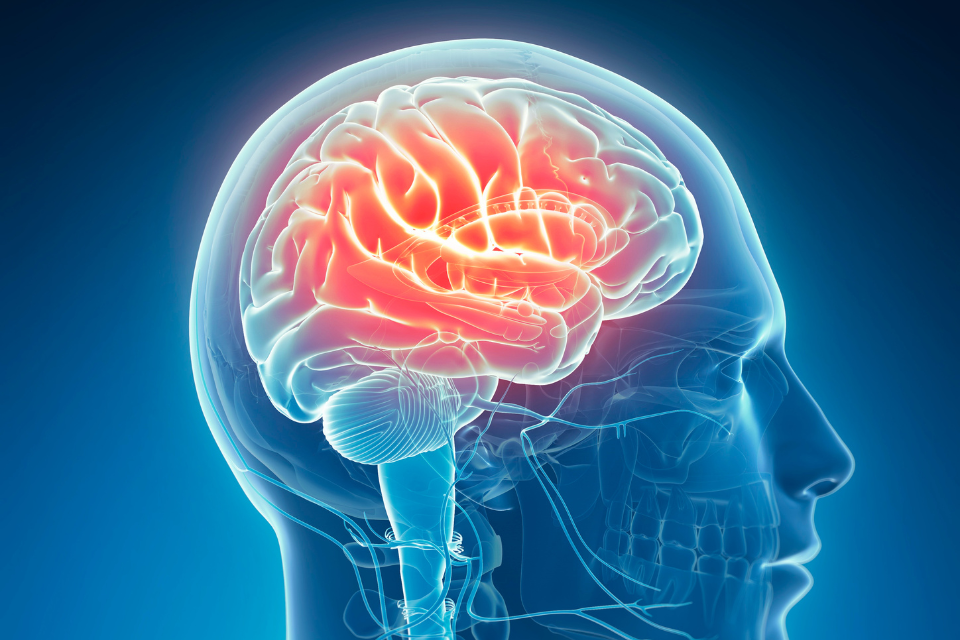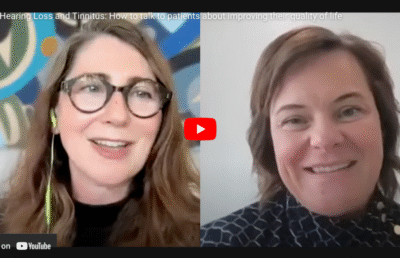What is the link between hearing loss and cognitive decline?
When hearing loss goes untreated, it can speed up cognitive decline by 30–40% and raise the risk of dementia up to 5 times. The good news is that using hearing aids and other treatments early on can make a big difference as studies show early intervention may slow cognitive decline by nearly half within just 3 years.
How are your ears connected to your brain health?
When you think about protecting your brain health as you age, what comes to mind? Maybe a daily crossword puzzle, regular exercise, or a Mediterranean diet. But there’s another powerful way to safeguard your cognitive function that many people overlook: taking care of your hearing.
At Chicago Hearing Services, we’ve seen how addressing hearing concerns can transform not just our patients’ ability to communicate, but potentially their long-term brain health as well. The connection between your ears and brain runs deeper than you might realize.
Many people are surprised to learn about the connection between hearing loss and cognitive decline. While they often seek help due to difficulty following conversations, they may not realize that addressing hearing loss can also help preserve memory and thinking skills.
How does hearing loss affect your brain?
When you experience hearing loss, your brain doesn’t just receive less auditory information; it actually begins to change in response. Research has identified three main ways this happens:
1. Your Brain Works Overtime
Imagine trying to have a conversation in a noisy restaurant when you have hearing loss. Your brain must work much harder to make sense of partial sounds, diverting resources away from other cognitive functions like memory and thinking. This “cognitive load” is measurable, brain imaging studies show increased activity in the prefrontal cortex during listening tasks in people with hearing loss, indicating your brain is straining to compensate.
This extra cognitive workload isn’t just temporary. Over time, this constant strain can speed up cognitive decline as your brain’s resources are consistently diverted from other important functions.
2. Social Withdrawal Takes a Toll
When conversations become challenging, many people gradually withdraw from social activities they once enjoyed. This isolation isn’t just lonely, it harms your brain. Studies show that loneliness accounts for about 28% of the connection between hearing loss and dementia risk.
Many people stop attending family gatherings or meeting friends because it becomes too frustrating to keep up with conversations. This social disconnection can affect not only their overall happiness but also their cognitive health.
3. Your Brain’s Structure Actually Changes
Perhaps most concerning is what happens to the physical structure of your brain when hearing loss goes untreated. Research has found accelerated brain tissue loss, especially in areas responsible for processing sound and speech. These same regions are often vulnerable to Alzheimer’s disease pathology, creating a potential double hit to these critical brain areas.
The Numbers That Should Get Your Attention
The evidence linking hearing and cognitive health has grown substantially in recent years, producing some eye-opening statistics:
- Adults with mild hearing loss have twice the risk of developing dementia compared to those with normal hearing
- This risk increases to three times higher with moderate hearing loss
- For those with severe hearing loss, the risk jumps to five times higher
- Cognitive abilities decline 30-40% faster in individuals with untreated hearing loss
- This acceleration is equivalent to aging your brain by 7 years
These aren’t just numbers; they represent real changes in quality of life and independence as we age.
How can an audiologist help protect your cognitive health?
Early Detection through comprehensive hearing evaluations
The first step in protecting your brain is knowing where your hearing stands. At Chicago Hearing Services, we provide thorough diagnostic hearing evaluations that go beyond basic screening tests.
Many people wait 7–10 years after first noticing hearing difficulties before seeking help. During that time, the brain adjusts to reduced auditory input in ways that may accelerate cognitive changes. Detecting hearing loss early allows for more effective intervention.
A comprehensive hearing evaluation includes:
- Pure tone audiometry to measure hearing sensitivity
- Speech recognition testing to assess how well you understand words
- Specialized tests to evaluate how you process speech in noisy environments
- Tympanometry to check middle ear function
These detailed assessments help identify not just if you have hearing loss, but what type and how it might affect your daily communication.
How can hearing aids help protect your cognitive health?
If hearing loss is identified, modern hearing technology can make a remarkable difference. Today’s hearing aids are sophisticated mini-computers that do far more than simply amplify sound.
Research published in the Journal of the American Geriatrics Society found that hearing aid use was linked to a 48% reduced rate of cognitive decline over three years. Another study showed that 32% of cochlear implant recipients with mild cognitive impairment actually returned to normal cognition after receiving their implants.
At Chicago Hearing Services, we believe there’s no one-size-fits-all approach to hearing technology. We take time to understand your unique listening environments, communication needs, and lifestyle to recommend options that will work for you.
How can auditory training and rehabilitation help?
Hearing aids alone aren’t always enough. Your brain needs to relearn how to process sounds it hasn’t heard in a while. That’s where auditory training and rehabilitation come in.
These specialized services help retrain your brain to process speech more effectively, potentially strengthening neural connections and cognitive functions. Research suggests that combining hearing aids with auditory training provides greater cognitive benefits than hearing aids alone.
Why ongoing support and adjustments are important
Your hearing and listening needs change over time. Regular follow-up appointments ensure your hearing technology continues to provide optimal benefit. These ongoing adjustments may be crucial for maintaining the cognitive benefits of hearing treatment.
What steps can I take now to protect my hearing and brain health?
If you’re concerned about the connection between hearing and cognitive health, here are steps you can take:
- Schedule a baseline hearing evaluation, even if you don’t think you have hearing loss. Early detection is key, and having a baseline allows you to track changes over time.
- Don’t wait to address hearing concerns. If you’ve noticed difficulties in conversations or have been turning up the volume on devices, schedule an appointment sooner rather than later.
- If you already use hearing aids, wear them consistently. The cognitive benefits appear greatest when hearing aids are used regularly throughout the day.
- Engage in cognitively stimulating activities that exercise your listening skills, such as attending live music performances, participating in group discussions, or enjoying audiobooks.
- Talk to your loved ones about hearing health. If you notice signs of hearing loss in family members, encourage them to seek a professional evaluation.
Beyond Better Hearing: How Audiology Care Benefits Your Brain
At Chicago Hearing Services, we see ourselves as partners in your journey to better hearing and overall health. Our approach is never transactional; we take time to listen to your concerns, understand your unique needs, and develop personalized solutions.
Properly fitted hearing technology can transform more than just a person’s hearing ability; it can improve their overall quality of life. When individuals begin rejoining family gatherings or returning to activities they enjoy, it’s a sign that their cognitive health may also be improving.
The connection between hearing health and brain function represents an opportunity to influence your cognitive trajectory through proactive hearing care. By seeking care from an audiologist, you’re not just investing in better communication today; you may be protecting your brain for years to come.
Ready to learn more about how we can help protect your hearing and cognitive health? Contact Chicago Hearing Services today to schedule your comprehensive hearing evaluation.
Note: This article is for informational purposes only and does not constitute medical advice. Please consult a healthcare professional for personalized guidance.





